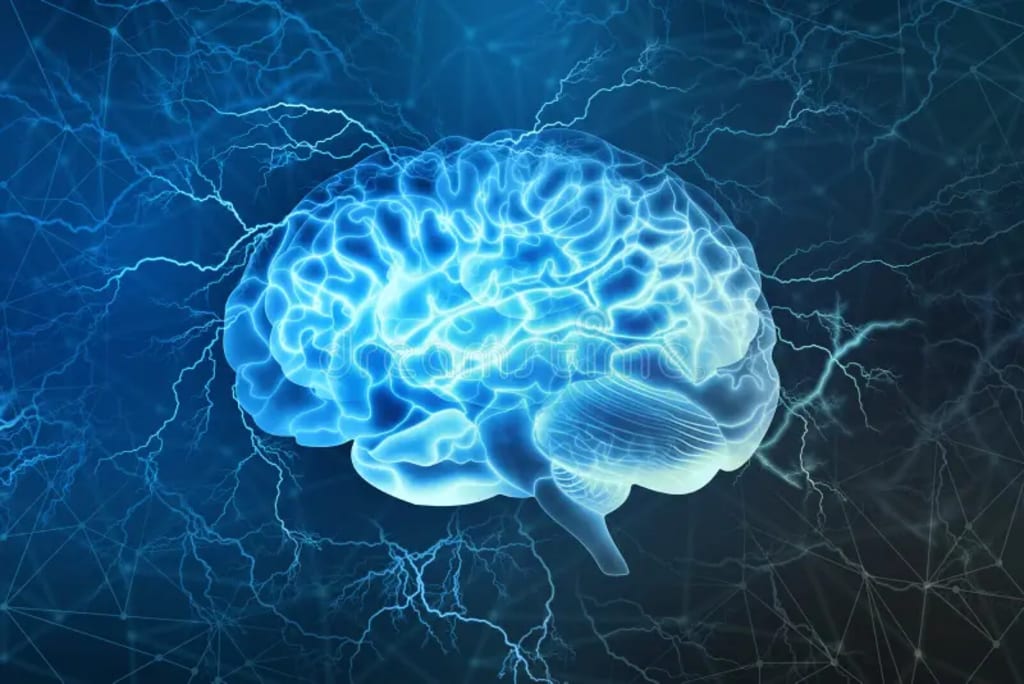
We use all parts of our brain, not just 10%. The size of the brain does not determine intelligence; it’s the complexity and development of specific areas that matter. A larger brain does not make a creature smarter. Intelligence is complex, involving cognitive and non-cognitive factors, and IQ tests only measure certain aspects of intelligence.
Neurologists Dr. Santoshi Bilakota and Dr. Brad Kamitaki debunk myths about the human brain. Brain size isn't an indicator of intelligence; complexity and development in specific regions are more important. For instance, chimpanzees have smaller brains but are highly intelligent. IQ tests are not a comprehensive measure of intelligence, as they don’t account for all factors and types of intelligence.
The brain’s plasticity is another critical factor in understanding intelligence and cognitive abilities. Neuroplasticity refers to the brain’s ability to reorganize itself by forming new neural connections throughout life. This adaptability allows the brain to compensate for injury, adapt to new learning experiences, and respond to changes in the environment. Engaging in activities that challenge the brain, such as learning new skills, playing musical instruments, or engaging in complex problem-solving, can enhance cognitive function and overall brain health. This ongoing adaptability highlights that intelligence is not fixed but can be developed and improved over time through education, experience, and mental exercises. Thus, promoting lifelong learning and cognitive engagement is essential for maintaining and enhancing brain function.
The myth that we only use 10% of our brains is false. Modern imaging techniques like PET and functional MRI show that we use all parts of our brain, though not all at the same time. Each brain region has specialized functions, such as the frontal lobe for motor and executive functions, the parietal lobe for sensory processing, the occipital lobe for vision, and the temporal lobe for memory and language.
Video games do not rot your brain. They can enhance certain cognitive skills like problem-solving, strategy, and teamwork. Excessive gaming might indicate underlying issues, but in moderation, it can be beneficial. Memory can change with age, but not all types of memory decline. Procedural and semantic memory often improve, while episodic memory might decline due to factors like decreased focus rather than pathological causes.
The idea that people are left-brained (logical) or right-brained (creative) is a myth. Brain functions are not strictly divided, and talents and skills develop through a combination of factors, not based on which hemisphere is more dominant. Strokes can be prevented by managing risk factors like high blood pressure, smoking, and diabetes. Recognizing stroke symptoms early and seeking immediate medical help is crucial.
Understanding the importance of mental health in relation to brain function is crucial. Chronic stress, anxiety, and depression can negatively impact cognitive abilities and overall brain health. Stress hormones like cortisol can interfere with memory and learning, while long-term mental health issues can lead to structural changes in the brain, affecting areas such as the hippocampus and prefrontal cortex. Addressing mental health through therapy, mindfulness practices, and healthy lifestyle choices is essential for maintaining cognitive function and promoting overall brain health. This underscores that maintaining a healthy brain involves not just physical health but also emotional and psychological well-being.
Eating fish doesn’t make you smarter, but it is beneficial for brain health due to omega-3 fatty acids. Trusting your senses entirely is unreliable as they can be influenced by emotions, memories, and individual differences. There are no structural brain differences based on gender; brain development is influenced by experiences and environment. Having a seizure does not mean you have epilepsy, which requires recurrent unprovoked seizures. Managing epilepsy involves medication and regular communication with a doctor.
Taking care of your brain involves understanding these nuances and maintaining overall health.
About the Creator
Sara EL GUESSABI
Biomedical Scientist PhD researcher | Creative Writer
Enjoyed the story? Support the Creator.
Subscribe for free to receive all their stories in your feed. You could also pledge your support or give them a one-off tip, letting them know you appreciate their work.






Comments (1)
Interesting and delicious content. Keep posting more